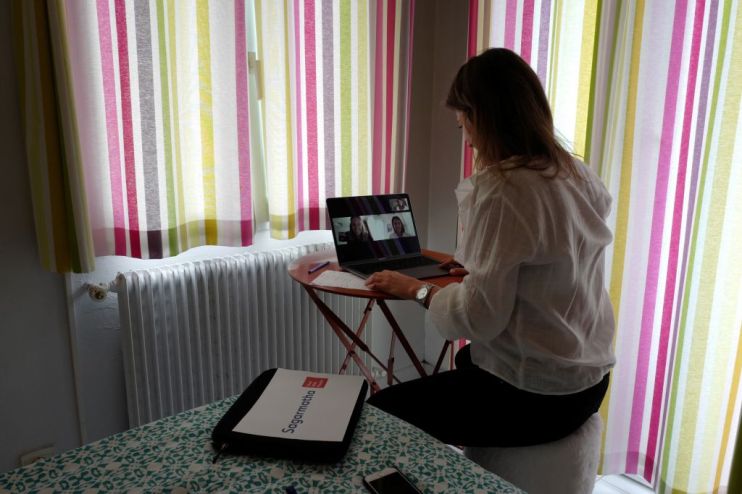With no office, our future leaders are being held back

In spite of the challenges facing central cities around the world at the moment, they are and will remain places with huge concentrations of the jobs which provide the greatest opportunities to learn and to move up the job hierarchy.
For young people, Central London offers an unparalleled combination.
A range of independent employers with overlapping demands in terms of skill sets; a flexible, competitive labour market encouraging on-the-job acquisition of human (and social) capital; and — in normal times — constant face-to-face contact in working environments that are ‘places where you learn’ new and marketable skills.
Read more: The future of cities: The age of urban miracles is not over
These findings line up closely with those of a report commissioned by FTSE 100 property developer Landsec. The report, ‘In person: Why coming together for work matters’ includes insight from both business leaders and young people on their experiences of remote working.
The report found that both groups have felt frustrated at the lack of opportunity to learn and develop during this extended working from home (WFH) period, and draws out lessons for the future of the office sector.
Landsec’s report suggests that, although remote working can have some benefits such as more flexibility, without the in-person dimension, business leaders will find it more difficult to create an environment that promotes a culture of wellbeing and development.
In my own interviews, it was clear what this milieu should offer.
Pre-pandemic, one consultant team leader described his team’s internal meeting: “It’s the best way of disseminating information. Young staff tend to say ‘we didn’t know that’ or ‘we never heard of that pitch’. You can’t rely on emails – people don’t read them unless the word ‘bonus’ is in the heading!”
Without a constant flow of learning and feedback, which is especially critical in knowledge-based businesses, younger people and those new to an organisation lose much-needed progression.
Isolation from more experienced staff makes it harder for new talent to ‘learn from the best’. And in the Landsec report, too, business leaders and young people commented that remote working is restricting their ability to learn and develop.
Read more: New skyscraper approved for Gracechurch Street
Thinking about the future of offices
So yes, the pandemic and lockdown have shown that, broadly, we can still operate on a remote basis, but it also showed us what we were missing.
2021 sees cautious hope of an eventual return to ‘normal’, so businesses should be thinking about what that return might look like now.
As we begin to hope for a post-pandemic work and home life, we think that a more hybrid way of working is on the cards.
Younger staff will see the office as a ‘hub’ where they can develop in both formal and informal settings, while keeping some of the flexibility experienced in the last year to WFH without managers worrying about performance.
What the hybrid office looks like still needs thought: if the office is to remain a central place where colleagues come together to collaborate in professional and social settings (and senses) then it has to be a place that stimulates creativity through flexible working arrangements rather than just a location where employees are parked side-by-side.
Office developers are busy exploring what the new office should look like for customers, with a renewed focus on giving workers the autonomy to chose the environment they need for the task at hand, be that a quiet break out space or an ideas hub.
Looking forward
Our young talent needs the support of and access to experienced individuals. One day they’ll be our business leaders, making their development in the early stages of their careers vital to the success of the city’s economy.
Getting the future of our offices right means a partnership, of developers of offices and occupiers, to jointly deliver workspaces that provide collaborative environments in which businesses continue to grow.
Martin Crookston is a planning consultant and the author of the forthcoming book: Why face-to-face still matters: The persistent power of cities in the post-pandemic era
Read more: Chancellor Rishi Sunak: The City could be set for a post-Brexit Big Bang 2.0